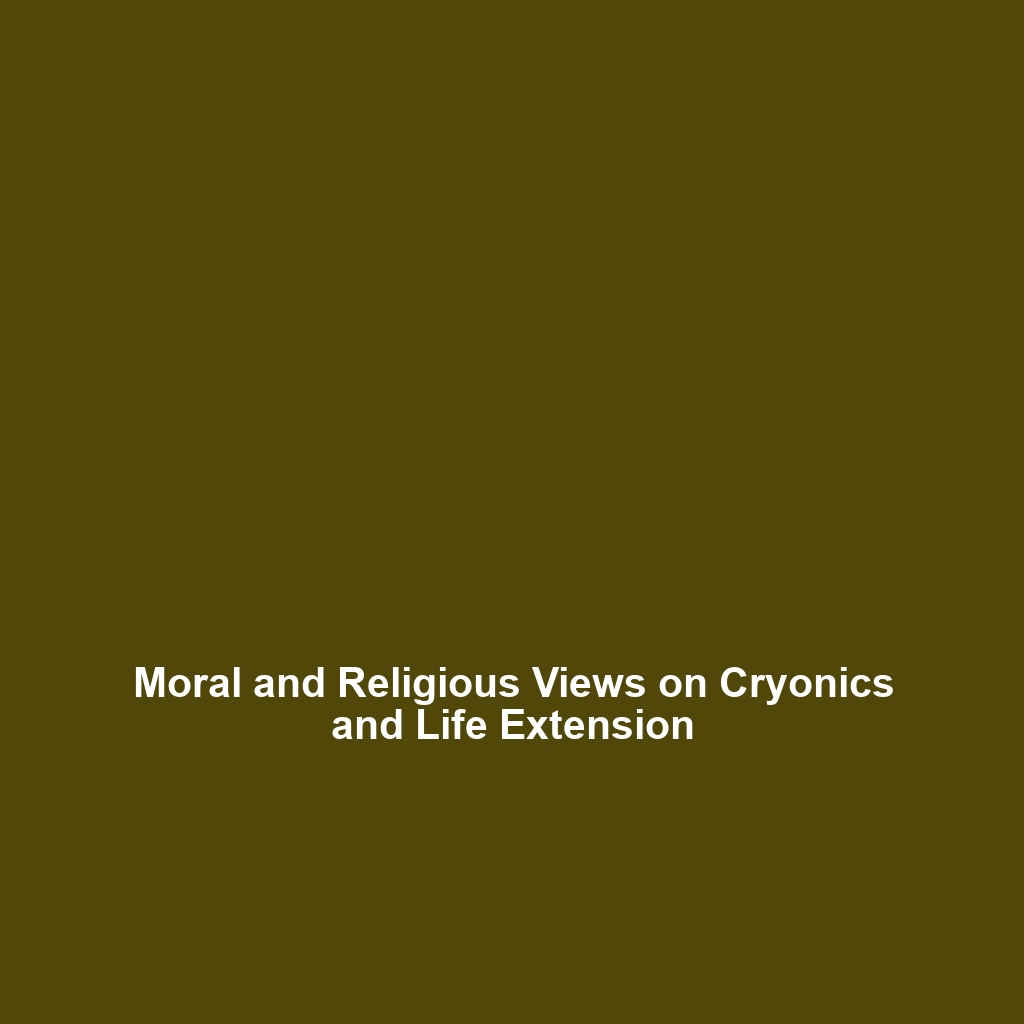Moral and Religious Considerations in Cryonics & Life Extension
Moral and Religious Considerations are pivotal in the discourse surrounding cryonics and life extension. As these technologies reshape our understanding of life and death, they evoke profound ethical questions and faith-based dilemmas. This article explores the critical intersection of morality and spirituality in cryonics, emphasizing their role in shaping societal perspectives and influencing policy decisions. Understanding these considerations is vital for advancing research and application in life extension, ensuring that such discussions are informed by a variety of viewpoints and beliefs.
Key Concepts
The study of Moral and Religious Considerations encompasses a variety of concepts integral to the fields of cryonics and life extension:
- Ethical Implications: The moral implications of preserving human life through cryonics raise questions about the value of life and the ethics of altering natural mortality.
- Religious Perspectives: Different faiths offer varied beliefs about life, death, and the afterlife, which influence their followers’ views on cryonics.
- Philosophical Theories: Several philosophical frameworks, such as utilitarianism and deontological ethics, provide distinct lenses through which moral arguments around life extension can be evaluated.
Applications and Real-World Uses
The implications of Moral and Religious Considerations manifest in various practical applications related to cryonics and life extension:
- Informed Consent: Ethical guidelines necessitate transparent communication with individuals considering cryonics.
- Policy Formation: Religious and moral views often shape legislation around end-of-life care and life extension technologies.
- Public Discourse: Engaging communities in dialogue about the ethical dimensions of cryonics fosters a broader understanding and acceptance of these technologies.
Current Challenges
The field continues to face numerous challenges in navigating Moral and Religious Considerations within cryonics and life extension:
- Ethical Dilemmas: Conflicts arise between technological possibilities and ethical obligations.
- Religious Opposition: Some faiths vehemently oppose life extension technologies, which can hinder research and acceptance.
- Public Misunderstanding: Misinformation and fear surrounding cryonics can stifle informed discussions and acceptance.
Future Research and Innovations
Looking ahead, several promising areas of research and innovation are expected to enhance our understanding of Moral and Religious Considerations in the context of cryonics and life extension:
- Interdisciplinary Studies: Collaborations between ethicists, theologians, and scientists could produce comprehensive frameworks for analyzing these considerations.
- Technological Breakthroughs: Next-generation preservation techniques may raise new ethical questions that require thoughtful consideration.
- Increased Public Engagement: Efforts to educate the public about cryonics may lead to more informed perspectives on its moral and ethical implications.
Conclusion
Moral and Religious Considerations hold significant importance in the ongoing discussion of cryonics and life extension. By addressing the ethical and spiritual dimensions of these technologies, we create a more comprehensive and inclusive dialogue about their implications for humanity. As research and technology advance, it is essential to continue exploring these areas. For more information on related topics, consider checking our articles on the ethics of cryonics and religious viewpoints on life extension.

Leave a Reply